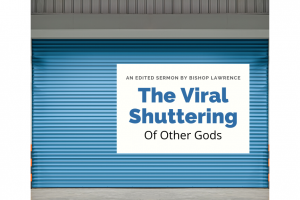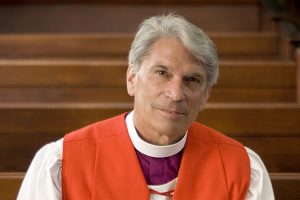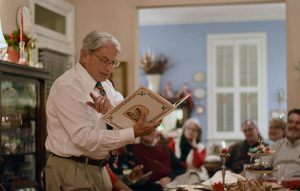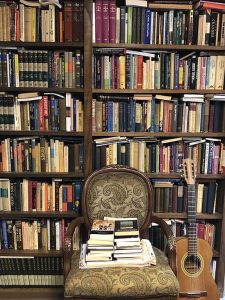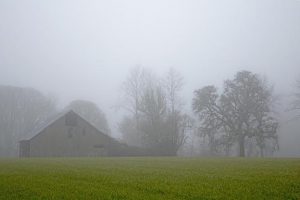An Interview with Bishop Mark Lawrence by Joy Hunter
Bishop, for many of us this will be the first time in our lives we won’t be in church on Easter morning. No Easter lilies; No packed crowd singing “Welcome Happy Morning;” No flowering of the cross. No big Easter dinner with extended family. The feeling of malaise is giving way to something darker. How are we to approach Easter this year?
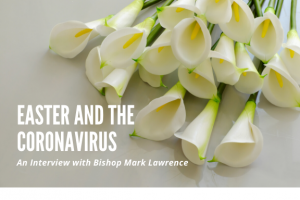 There’s some remarkable irony there. Just think about that first Easter morning when Mary Magdalene and Mary, the mother of James, and Salome went to the tomb on the first day of the week just as the sun was rising. They were not going in the way you and I go to the Easter morning service with a great deal of expectation and hope, waiting to say, “Alleluia, the Lord is risen,” and hear one another say, “He is risen indeed, Alleluia!” They were going with spices to anoint the buried body of Jesus. They were hardly in a mood of expectation, of joy, of hope. They were going there overwhelmed by life, overwhelmed with what they had lost, what they did not have, who they could not see, the one they could not hold.
There’s some remarkable irony there. Just think about that first Easter morning when Mary Magdalene and Mary, the mother of James, and Salome went to the tomb on the first day of the week just as the sun was rising. They were not going in the way you and I go to the Easter morning service with a great deal of expectation and hope, waiting to say, “Alleluia, the Lord is risen,” and hear one another say, “He is risen indeed, Alleluia!” They were going with spices to anoint the buried body of Jesus. They were hardly in a mood of expectation, of joy, of hope. They were going there overwhelmed by life, overwhelmed with what they had lost, what they did not have, who they could not see, the one they could not hold.
If we go through all of the Easter stories, one after another it is of Jesus appearing to a relatively small group of people. Not in a religious setting. Not in a synagogue, not in a temple, but in a home. It may be that we need to rediscover the power of the resurrection to lift us in the midst of our gloom, in the midst of our daily lives. It’s not something we have to go to to experience him, but whenever we gather in his name, he can be among us. That’s one aspect we need to cultivate and, perhaps, rediscover.
To be honest, I will miss it too—Easter morning at church. I will miss singing, “Welcome happy morning.” “The Day of Resurrection,” all of those great Easter hymns. I think I can play them here at home. In fact, I think I will!
Is there a way to enter Holy Week and Easter on a deeper level during this time of social isolation?
The power of Jesus’ resurrection in the daily life of believers doesn’t have to be related to us walking through these (Holy Week) events in the way we’re used to doing them. We can allow him to meet us in the ways that he wants.
I think of those two disciples walking to Emmaus on Easter day. They met him as they traveled along the road, which is the way most of us meet him, as we’re traveling along the road of life. They met him while they were in the middle of their need, which is how most of us meet him. They met him without recognizing who he was, which is the way most of us first approach him. And they met him thinking, at first, he was a stranger, which is who he is to most of us when we first encounter him. It is strange – this whole situation we’re in. But we can still meet him or he us. We can encounter him and it can be life transforming. Sometimes you have to let go of what you think is most precious in order to discover He who is most precious of all.
How will this Easter be different for you?
Well, I won’t be in church on Sunday. I’ll be in church on Saturday doing a video recording which will be used on Sunday. Easter I will be home. To be honest, I don’t know what that will be like. It might be quite enjoyable. It will be very different, too, because usually we have a large family gathering. We may have some family come, but we won’t have all of them here. If we did and someone got sick, a lot of people would have to go into quarantine!
Is there anything you’ve been struggling with, personally as we go through the pandemic?
You know what I struggle with? I struggle with what to make of it. Is it some aspect of our fallen human state and world, an evil which is manifesting itself in ways that we need to eradicate? Or is there something more that we as a people need to grapple with, things we need to reflect upon?
In some ways I’m eager to get back to normal, but in some ways there was a lot about the normal that wasn’t necessarily wholesome. Life for many of us has been busier. As TS Eliot put it years ago, we find ourselves “distracted from distraction by distraction.” That’s the normal. During this pandemic there have been more distractions for me than there were before and more disorienting distractions than there were before. The pace hasn’t stopped, the busyness hasn’t stopped, the phone calls have increased, the text messages have increased. I’m thinking to myself, I ought to be using this quarantine to go deeper with God, deeper in prayer, deeper in intercession for the world, and preparing myself, the Diocese and the church for whatever is going to be on the far side of this, that God might want to do.
If all we’re doing is filling our lives with busyness, making more and more videos, and spending all our time trying to learn this technology so we provide things for and stay connected with people but get no connection with God, no connection with the deeper things of the soul, it’s been a profound waste of a crisis.
It’s true, that much of our church life, as we know it, has been removed. And our clergy are desperate to find a way to replace it, to try to stay connected with their people; meet their people’s needs. But what if that’s not what we should be about? What if we need to be still and know that he is God? That he will be exalted among the nations. That he will be exalted among the earth.
I feel an odd sense of disconnect from what I think I ought to be connected with during this time of quarantine; consumed with busyness when I wonder if what I’m really being called to is the quiet place of prayer, reflection and study and time of soul.
Jesus’ appearance to Mary was one on one. The appearance of Jesus in Luke’s Gospel at the tomb was to three women. The appearance of Jesus on the road to Emmaus was to two disciples. He appeared to Peter and even on Easter night when he appeared to the disciples in the upper room, Thomas wasn’t there. None of the appearances until much later was to any number greater than what would appear the 10 of the CDC (Centers for Disease Control) request. So evidently, you can have the hope, and the power, the joy and the reality of the resurrection without a big building filled with people and so maybe what we need to focus on is the power of the resurrection in our homes, in our day-to-day lives, in the midst of our immediate family.
How has social distancing affected your work-life? Home-life?
It really hasn’t affected my home life at all except that I haven’t been around my adult children and grandchildren as much as I would like and so I miss that. Work life? Some, because I’m usually on the road a lot. I suppose it’s affected work the most because when I meet with people I meet them as a whole entity, a physical person. You pick up things from them that you don’t pick up through a virtual meeting. So it’s a really strange environment. One becomes more and more aware of the importance of the incarnation that God took on our human form, our human condition. In one way that’s limiting. But to appear to everyone on a screen is not the same as embodied human interaction. There’s no virtual substitute for life lived in relationship to people.
Right now, there’s no method to prevent and no medicine to cure this deadly infection. What is your spiritual prescription for us, as the people of this Diocese?
Part of the Christian answer to that is in the death and resurrection of Jesus Christ. He has removed the sting of death. We don’t sit lightly towards it. We grieve just like other people at the loss of loved ones. We don’t seek to be foolish as we look at death, but we don’t have to fear what comes next. The Christian answer to all of that is “We are more than conquers through Christ who strengthens us.” “He who has begun a good work in us will bring it to completion” so be still and know that he is God. “He will be exalted among the nations. He will be exalted in the earth.”
That is part of the Christian answer to all of this. Along with the fact that we need to be in intercession and in prayer for our world, for those who are fearful, for those who are suffering, for those who are dying without the hope that the gospel brings, for those who are on the front lines caring for those who are coming into the hospitals and the ICU units, many of whom may be there because of their commitment to our Lord Jesus Christ, who have entered into this life as a nurse or as a doctor as their Christian calling. Others are serving as missionary doctors, many with inadequate tools, no ventilators at all. For researchers in medicines and vaccinations. And for our political leaders.
So in the midst of that we need to be in prayer. There’s plenty to keep us occupied if we only look at it through the priorities that God has for us at this time. We can go about our daily lives with a sense of purpose, faithfulness and love.
I told some clergy in our smaller congregations during a recent Zoom call of a scene in the movie version of The Hobbit. Lady Galadriel asks Gandalf why he included Bilbo Baggins in the dwarf’s dangerous mission against a dragon? Gandalf answered, “Saruman thinks that it is only power that keeps evil in check. But that is not what I have discovered. I’ve discovered it is often the small, kind, and loving act that keeps evil at bay.”


